He juggles many balls in the air. So many that one can safely say they sometimes whirl around his ears. But his track record shows that he is actually capable of catching the majority of them, the most important ones, and making something meaningful out of them.
July 1st, 2023, is a special day for Michael Hvolgaard Andersen. Exactly twenty years ago on this date, he took a huge leap, defying current trends and holding onto what his heart and gut told him. He founded the record label Target Group, a company that has since grown significantly, with its own label, publishing house, webshop, rock bar, extreme metal bar, music festival, and booking agency.
With nostalgic lenses firmly perched on the bridge of his nose, Michael Hvolgaard Andersen looks back on the first twenty years with Target.
His recipe for success is painfully simple. It’s about determination. The determination to never give up, to not relinquish his life’s work and passion. And to constantly be innovative, to be able to see and understand the new trends – and then follow his heart and gut feeling.
“When Target started back then, we were primarily a Danish distribution and promotion company for foreign labels and a few Danish bands who chose to self-publish. We sold physical records – CDs and LPs – to Danish record stores Fona, Stereo Studio, TP, Guf, Axel, Coop, Dansk Supermarked, and many specialty stores,” he explains: “When all the chains and most specialty stores closed down almost overnight, we had to rethink. That’s how it has been almost every year for the past twenty years: One step ahead. What will it look like in two years? Not waiting, but doing it now. Being a first mover.”
Starting their own label
And that’s exactly what happened leading up to July 1st, 2003. While the other record labels were buckling under, Michael Hvolgaard Andersen made his move. First from premises in Frederiksberg and since 2014 from Vesterbro.
“When the stores died, we started our own Danish label and publishing house and our own webshop. When physical sales began to disappear in earnest, we started our booking department and shortly after, our first festival, Nordic Noise. When digital truly took over, we moved to Vesterbro and opened a rock bar, Zeppelin Rock Bar, in 2014 under the slogan ‘You can’t digitalise a draft beer,'” he explains: “Most recently, I have delved further into the bar industry and opened the extreme metal bar Left Hand Path, invested in properties, and bought into a music studio. I’m a restless soul, a dangerous blend of artist and businessman, and things quickly become boring for me, so it’s important – for me – to always keep busy and find new things that can stimulate the body and soul so you don’t sit and brood. Idleness is the root of all evil.”
Target is a member of organizations such as IFPI, Musikforlæggerne, DUP, and keeps up to date with all relevant international music-related newsletters and sites, so the company is always up-to-date.
The Recipe
But how can one keep the machine running for two decades in such an unpredictable industry like the music industry? And how do you continuously attract established artists and develop the business and its areas? Michael Hvolgaard Andersen provides his insights here: “Networking, networking, networking. It is always important to be physically present and meet people face-to-face. I may not be the most social person and not the best at small talk, flirting, and probably not the most politically correct in the industry. I am a ‘no bullshit guy’ who gets things done.”
But that is only one part of the secret. Another part is about the deals Target is able to make.
“We can offer professional deals that are often not as binding as majors. And a closer collaboration where artists actually see money. At the same time, majors today focus a lot on quick fixes, meaning single releases, purely digital with a focus on digital streams and playlists, while we are more ‘old school’ and still often focus on the album format, physical formats, and a slightly more long-term strategy,” explains Andersen – and elaborates: “With many releases, we aim internationally, where we have a huge network. This year, for example, we have had chart placements in England, Germany, and Sweden, and overall we sell more records and stream more abroad than in Denmark.”
And with twenty years in the ever-changing music industry, Target possesses skills that make things happen for artists and partners.
“We believe that the craftsmanship we have built over twenty years still works. We still have albums on the charts, songs on the radio, works that make it into games, movies, and TV series. We receive many reviews and mentions, and our successful artists would probably say that they make ‘real money’,” says Michael Hvolgaard Andersen: “In short, we have a good business model that works. We have also learned from the past and know that we should only work with music we appreciate and understand ourselves.”
That is also a significant part of the secret behind Target’s success, he explains: “Every time we have tried to sign something we thought could be commercially successful, something we could make money from but didn’t personally appreciate, we have failed. However, recently we have made deals with, among others, Randi Laubek and Hotel Hunger. Two artists I am very proud to have in our roster and personally a fan of. And in the slightly heavier genre, Michael Catton and Timechild, both of whom have made great albums that I personally listen to and believe can become big if they are fully supported.”
Record companies
Michael Hvolgaard Andersen firmly believes that there is still a future for traditional record companies.
“Absolutely! There will always be artists who need a professional set-up with mentoring, dialogue, release, promotion, marketing, and so on – and a company that has a financial risk for them. It costs money to get the artist in the studio, recording, mixing, mastering, artwork, printing, advertising, marketing, promotion, music videos, photos,” he says: “It’s like buying a property and thinking you can fix everything yourself instead of hiring professional craftsmen like carpenters, bricklayers, electricians, and plumbers. You may be able to design, paint, and handle small things yourself, but the rest should be left to professionals, even if it costs more than doing it yourself. On the other hand, professionals also have access to cheaper materials, and they can do it faster and undoubtedly better than you can.”
The same applies to the music industry, according to Michael Hvolgaard Andersen: “Professional companies have access to cheaper printing, graphic designers, and easier access to the various gatekeepers. Yes, there is satisfaction in doing it yourself, both as a musician and as a handyman, but in the long run, you have to ‘stick to your guns’,” he asserts: “There have been many examples of established artists who have tried to self-publish but have returned to a set-up with business partners so that they can once again focus on what they are good at: writing music, recording it, and performing it live. All artists who make a living in the music industry have a professional set-up, whether it’s management, a booking agent, a record label, or a music publishing company behind them. However, these roles are becoming more and more blurred.”
The Successes
With the nostalgic glasses on, Michael Hvolgaard Andersen can quickly list Target’s greatest successes in the first twenty years without hesitation: “Volbeat, The Floor Is Made Of Lava, The Savage Rose, Malk De Koijn, the Belli family (Peter Belli and Den Syvende Søn), Tygers Of Pan Tang, Søren Andersen, Electric Boys, Alberte Winding, Juncker, Blitzkrieg, and Mike Tramp – when we talk about artists,” he says, adding: “I would also consider our focus on the live market and the bar business as successes. Without that, Target Group might not be here today.”
However, the major achievement is keeping the company independent for twenty years, emphasizes Michael Hvolgaard Andersen: “Simply running a professional music company independently for twenty years is an achievement in itself. We have had the best results ever in recent years, so we must be doing something right, and we have built up a large catalogue that works for us. Before and during COVID, I was constantly uncertain about the future. I’m not anymore. The two to three years of COVID and lockdown have made me clean up everything and have a tight, secure business model.”
The Future
When discussing successes with Michael Hvolgaard Andersen, it is also pertinent to inquire about the opposite. But he can’t think of any actual failures off the top of his head.
“Honestly, I can’t think of anything right now that I would consider a definite failure, and it would also be mean to expose an artist where nothing went as planned,” he begins. “There have, of course, been artists where we lost money, things we shouldn’t have bought, productions and music videos that became too expensive, bands we invested in that dissolved just as they were about to break, employees we shouldn’t have hired, and so on, but all those things from the past have only made Target Group stronger and better equipped to be where we are today, and unless I’m unable to work anymore due to health reasons, the company will still be here in twenty years,” he says.
Plans have also been made for the time after Michael Hvolgaard Andersen.
“I’ve only just turned forty eight – after all. The next generation to take over the company, when the time comes, is slowly being prepared, and many precautions have been taken. There have been initial discussions with my accountant about how to handle everything smartly. But let’s see what happens,” he says. “The music industry is a strange industry, and anything can happen. Over the years, there have been offers from various major companies to acquire Target Group, but we have politely declined. I’ve seen examples of other companies selling their life’s work, and it didn’t make the owners better people. On the contrary, it reduced them to a shadow of themselves. It’s hard to start from scratch again or enter a new industry when you’re at my age, and I don’t lack anything, so why should I sell?”
So, the stage is set for a future with Target. And there is plenty of musical future in the company as well.
And one of the company’s newer Danish bands is heading towards a promising future, according to Michael Hvolgaard Andersen: “Junkyard Drive. The Danish rock band will release their fourth album next year, and they have grown and evolved over the years, both musically, in terms of their profile, and as a band, and they are still in their twenties. The new album has a greater cross-over potential, and I predict that they will become the next The Floor is Made of Lava or Rock Hard Power Spray in Denmark. I dare not say Volbeat when it comes to international success” he concludes with a smile.
Michael Hvolgaard Andersen interview by Lars Schmidt.


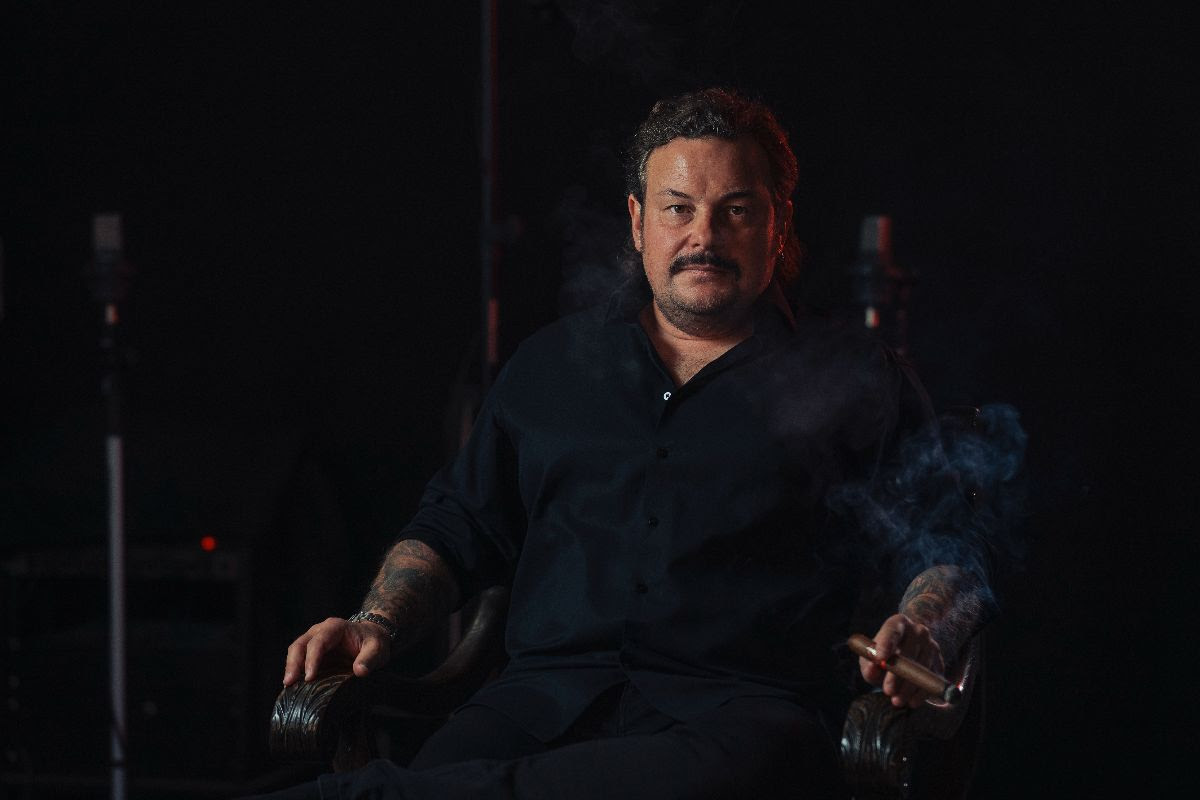
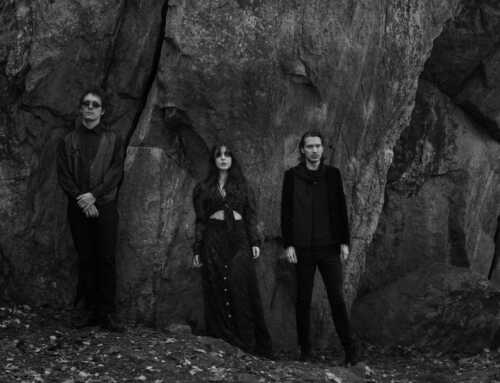
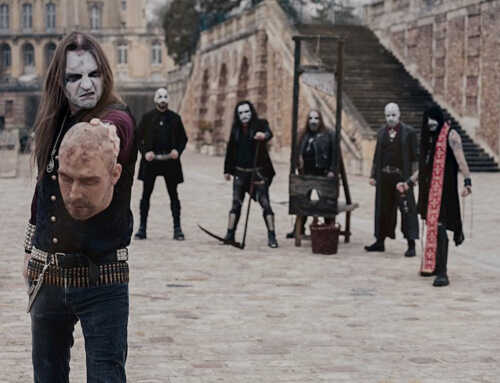

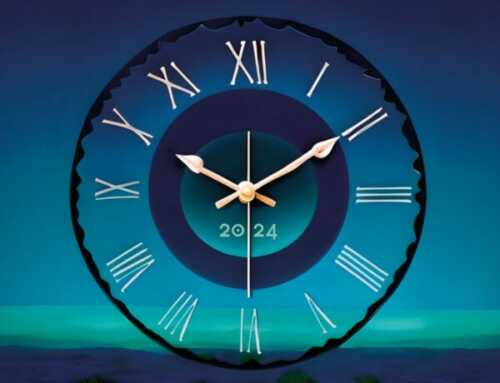
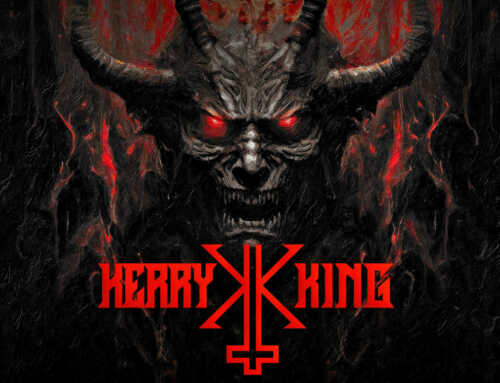
Leave A Comment